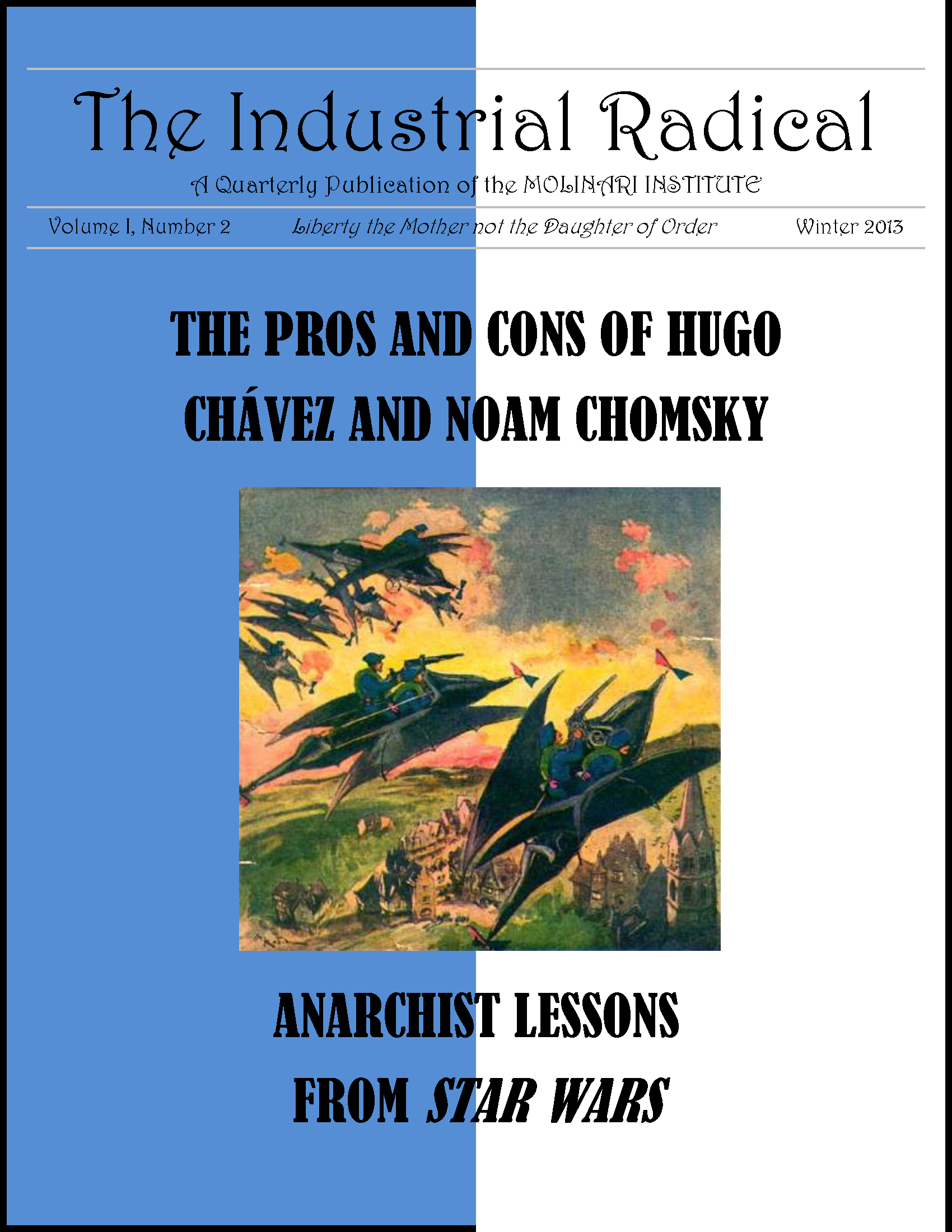In this episode of the Liberty Minded Radio Show C4SS Fellows Jason Lee Byas and Trevor Hultner team up with Grayson English to discuss S4SS, the University of Oklahoma’s Students for a Stateless Society and their successful “Ask an Anarchist Day”.
http://youtu.be/gKYQUJp1zRs
With S4SS, our goal is to develop a networked structure that will allow for maximum autonomy while fostering maximum inter/intra-chapter participation, communication, and coordination.
All power to the affinity groups!
Leaning on Elinor Ostrom’s Design Principles for Collective Action we have decided to try the following organizational orientation:
The Students for a Stateless Society (S4SS) agree to the following four design principles:
1. “Student” does not mean subservient, submissive, or subordinate. A student is anyone who desires knowledge. A student can be either a teacher or a learner.
2. A stateless society is anarchy. Students have a right to contribute to and have a voice in the institutions they participate or constitute. As anarchists we will actively pursue and support hierarchy dissolving and mutual aid projects. Our time as students is not a time of passivity or mindless discipline, but a time for activity and creativity.
3. S4SS spaces are safe and valued spaces. We are dedicated to not only identifying agents of aggression, but dissolving institutions of oppression.
4. All chapters of S4SS, to be considered active, must have at least one volunteer “point of contact” that can be reached by interested students or encouraging chapters. There is no limit to the number of S4SS chapters that can be on any one campus – swarm and take over!
If S4SS sounds like a project that you would like to support or set up in your area, then see if one of the active S4SS chapters is near your campus or register your own.
And again, swarm and take over!









